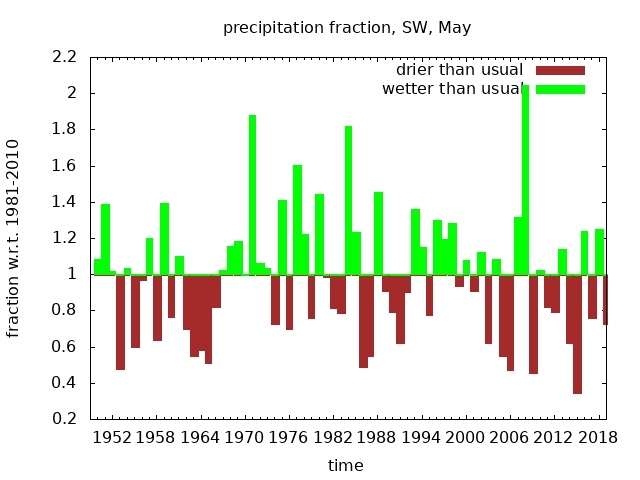The global pursuit of sustainable energy solutions has put hydrogen at the forefront of the energy revolution. Among the various technologies evolving around this versatile element, the concept of the Hydrogen Executor has gained considerable attention. This article delves into the significance of the Hydrogen Executor, its applications, benefits, challenges, and role in shaping a cleaner, greener future.
What is a Hydrogen Executor?
A Hydrogen Executor is a system or framework designed to manage, execute, and optimize hydrogen production, storage, distribution, and utilization as a clean energy source. Hydrogen, often dubbed the “fuel of the future,” can replace fossil fuels in various sectors, and the Hydrogen Executor is a crucial tool for harnessing its full potential efficiently.
The term “executor” implies a sophisticated mechanism or software-powered solution that facilitates seamless hydrogen energy management. These systems typically integrate advanced technologies like artificial intelligence (AI), the Internet of Things (IoT), and smart energy grids to ensure hydrogen’s role in the energy mix is effective and scalable.
Why is Hydrogen Important?
Hydrogen is a clean, abundant, and highly efficient energy carrier. It emits only water vapor when used as a fuel, making it an ideal solution for reducing greenhouse gas emissions. Its versatility allows it to power various applications, from vehicles to industrial machinery and even entire power grids.
Key benefits of hydrogen include:
- Sustainability: Hydrogen can be produced from renewable sources like water via electrolysis using green electricity.
- Energy Storage: It acts as a medium for storing renewable energy, addressing the intermittency of sources like solar and wind.
- Versatility: Hydrogen can be used in fuel cells, burned directly, or converted into ammonia for transportation and storage.
The Role of Hydrogen Executors

The Hydrogen Executor is pivotal in addressing the challenges associated with hydrogen’s adoption and scalability. Here’s how it contributes across the hydrogen lifecycle:
- Production Optimization
- Hydrogen executives leverage AI-driven analytics to optimize hydrogen production processes. For instance, electrolysis—a key method of producing hydrogen from water—requires significant electricity. Executors can monitor energy inputs and ensure production aligns with peak renewable energy generation periods, maximizing efficiency and minimizing costs.
- Storage Solutions
- Hydrogen is highly flammable and challenging to store. Executors ensure safe storage by monitoring real-time pressure, temperature, and containment integrity. They also suggest optimal storage mediums, such as compressed hydrogen gas, liquid hydrogen, or chemical carriers like ammonia.
- Distribution and Transportation
- Due to its low density, distributing hydrogen across large distances is complex. Hydrogen Executors streamline distribution logistics, ensuring minimal energy loss and efficient routing. They also manage pipelines, tanker transport, and the development of hydrogen refueling stations.
- Usage Management
- From fueling hydrogen-powered vehicles to industrial applications, executives ensure hydrogen is used where it’s most needed. This includes prioritizing critical sectors, balancing supply and demand, and managing integration with existing energy systems.
- Safety and Compliance
- While promising, hydrogen comes with risks. Executors enhance safety by continuously monitoring systems for leaks, pressure anomalies, and other hazards. They also ensure compliance with international standards and protocols.
Applications of the Hydrogen Executor

- Transportation
- Hydrogen Executors play a significant role in the automotive and aviation industries. They help manage hydrogen refueling networks, ensuring efficient fuel delivery to hydrogen-powered vehicles. These systems also monitor vehicle fuel cell performance, providing real-time insights to enhance reliability.
- Industrial Energy
- Heavy industries, such as steel and cement production, which rely on high-temperature processes, can benefit from hydrogen as a cleaner alternative to coal. Executors optimize hydrogen delivery to these industries, ensuring a cost-effective and uninterrupted energy supply.
- Power Grids
- Hydrogen can stabilize renewable energy grids as a storage medium during peak production periods. Executors integrate hydrogen storage with smart grids, ensuring energy is available during demand spikes or low renewable output periods.
- Residential and Commercial Use
- Executors facilitate the adoption of hydrogen-powered heating and energy solutions in homes and businesses. They ensure seamless integration with traditional energy systems and monitor usage patterns for efficiency.
- Maritime and Aviation
- Hydrogen executives support the burgeoning use of hydrogen in shipping and aviation by managing large-scale storage and fueling systems. This is critical for decarbonizing long-haul transportation.
Advantages of the Hydrogen Executor

- Efficiency: Enhances hydrogen production, storage, and utilization processes, reducing waste and costs.
- Scalability: Enables large-scale adoption of hydrogen energy by addressing logistical and technical barriers.
- Integration: Seamlessly integrates with existing energy systems and renewables, supporting the transition to a decarbonized economy.
- Safety: Minimizes risks associated with hydrogen handling through advanced monitoring and predictive analytics.
- Sustainability: Promotes using green hydrogen, reducing reliance on fossil fuels, and cutting emissions.
Challenges and Considerations
Despite its potential, the Hydrogen Executor faces several challenges:

- High Costs
- Hydrogen production, mainly green hydrogen, is expensive due to the high costs of renewable energy and electrolysis equipment. Executors can help optimize costs but cannot eliminate them.
- Infrastructure Gaps
- The lack of widespread hydrogen infrastructure, including refueling stations and pipelines, hampers adoption. Executors must work within these limitations while advocating for infrastructure development.
- Technical Complexity
- Managing hydrogen systems requires advanced technology and expertise. Executors need continuous innovation to address evolving technical challenges.
- Energy Losses
- Hydrogen production, storage, and transportation can result in energy losses. Executors must focus on minimizing these inefficiencies.
- Policy and Regulation
- Clear policies and regulations are essential for scaling hydrogen use. Executors must adapt to diverse regulatory frameworks across regions.
The Future of Hydrogen Executors

The Hydrogen Executor is set to play a central role in the global transition to renewable energy. As governments and industries ramp up investments in hydrogen, executives will evolve to address emerging needs and challenges. Key trends to watch include:
- AI and Machine Learning Integration: More sophisticated analytics for predictive maintenance, demand forecasting, and production optimization.
- Decentralized Energy Systems: Executors enabling localized hydrogen production and storage for community-level energy independence.
- Collaborative Ecosystems: Partnerships between hydrogen technology providers, energy companies, and governments to drive innovation and infrastructure development.
Conclusion
The Hydrogen Executor embodies the technological leap to make hydrogen a mainstream energy source. By addressing production, storage, and distribution challenges, these systems pave the way for a cleaner, more sustainable future. With continued innovation and investment, the Hydrogen Executor will revolutionize energy management and play a pivotal role in achieving global climate goals. As the world embraces hydrogen, the Executor will be its guiding force, ensuring the transition is efficient, safe, and impactful.














Leave a Reply